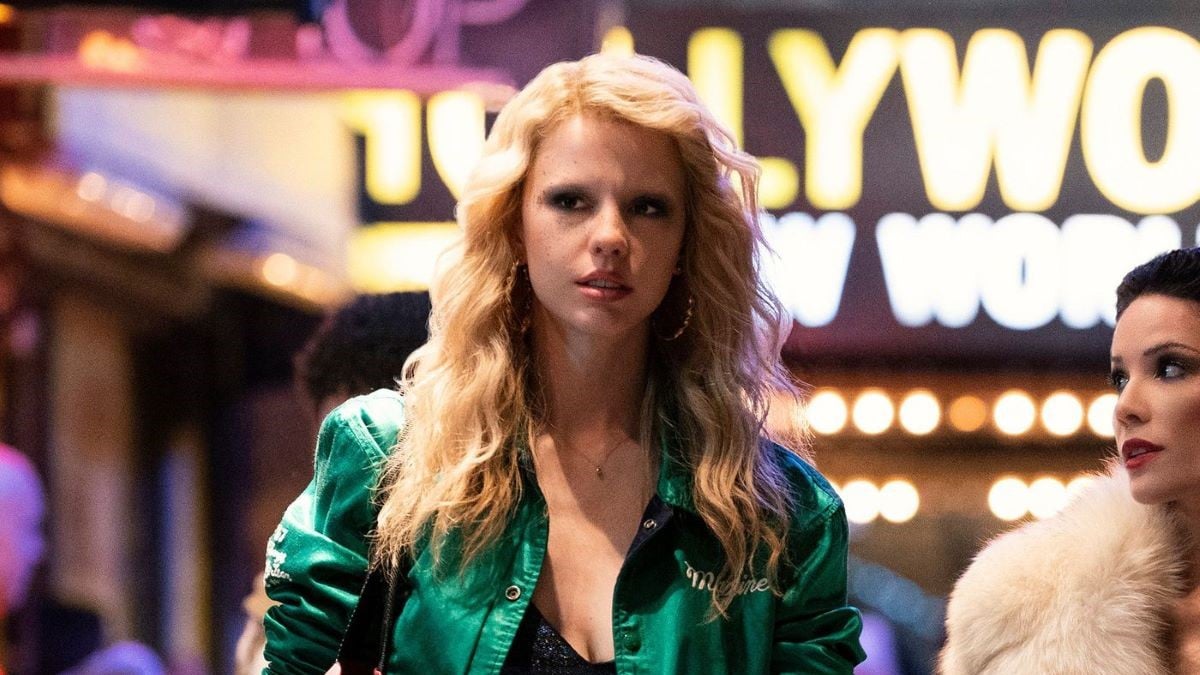Per FlixPatrol, on this day of Oct. 21, MaXXXine — the final film in Ti West’s trilogy that began with X and was followed up by the prequel Pearl — stands triumphantly atop the Max charts in the United States, beating out a whole platoon of fellow horror films, such as Stephen King adaptations ‘Salem’s Lot and It, A Nightmare on Elm Street, and even its own flesh and blood, X.
The horror genre has seen a remarkable arc over the course of its lifespan. From the early gothics, to being one rung above pornography on the art ladder, all the way to internet sketch comedians putting out immensely smart flicks, horror is the earthly punk of Hollywood that has always known more than it let on. Among the vanguards of modern-day horror is Ti West and his unfairly-talented muse Mia Goth, who together have crafted one of the most brilliant mythologies that this illustrious genre has ever played host to. And its bookend, MaXXXine, is the current star of Max.
Where X was a none-too-subtle examination of how we quantify bodies, and Pearl was a cutthroat character study interested in the topic of being seen, MaXXXine is a cultural beast whose nuances demand careful attention, and perhaps some borrowed insight from a long-standing horror legend.
MaXXXine deals in many topics; sensationalist true crime, the ‘80s-era satanic panic (specifically by targeting horror movies and pornography), the rush of fantasy versus the sobriety of reality, and the human body as the common denominator of it all. MaXXXine also lacerates a system and industry built upon exploitation, as well as the reactions against that system.
Of his film A History of Violence, David Cronenberg remarked in a 2005 interview:
For me the first fact of human existence is the human body. I’m not an atheist, but for me to turn away from any aspect of the human body to me is a philosophical betrayal. And there’s a lot of art and religion whose whole purpose is to turn away from the human body. I feel in my art that my mandate is to not do that. So whether it’s beautiful things – the sexuality part, or the violent part or the gooey part – it’s just body fluids.
With respect to the human body, MaXXXine gorges on pornography, horror movies, and true crime specifically because of how they remove us from its physical immediacy. Juxtapose that with Maxine’s lack of distance; she is not removed, having literally murdered people not out of righteousness or attention, but because she had to survive in order to chase the life (the real life) she wanted for herself.
Furthermore, the unsanitized horrors faced by Maxine reflect real-life turmoil far more than the spotlessness that paranoid evangelists demand of art, and in a key twist of irony, the antagonistic violence in MaXXXine is driven by a hatred for horror and pornography, rather than a worship of it. A police shootout drops about as many bodies as a serial killer spree, so what’s separating these two things as entertainment?
Consider this paradox in the context of the adage that art seeks to disturb the comfortable, and comfort the disturbed. Is it any wonder that Maxine boasts the swagger that she does?
